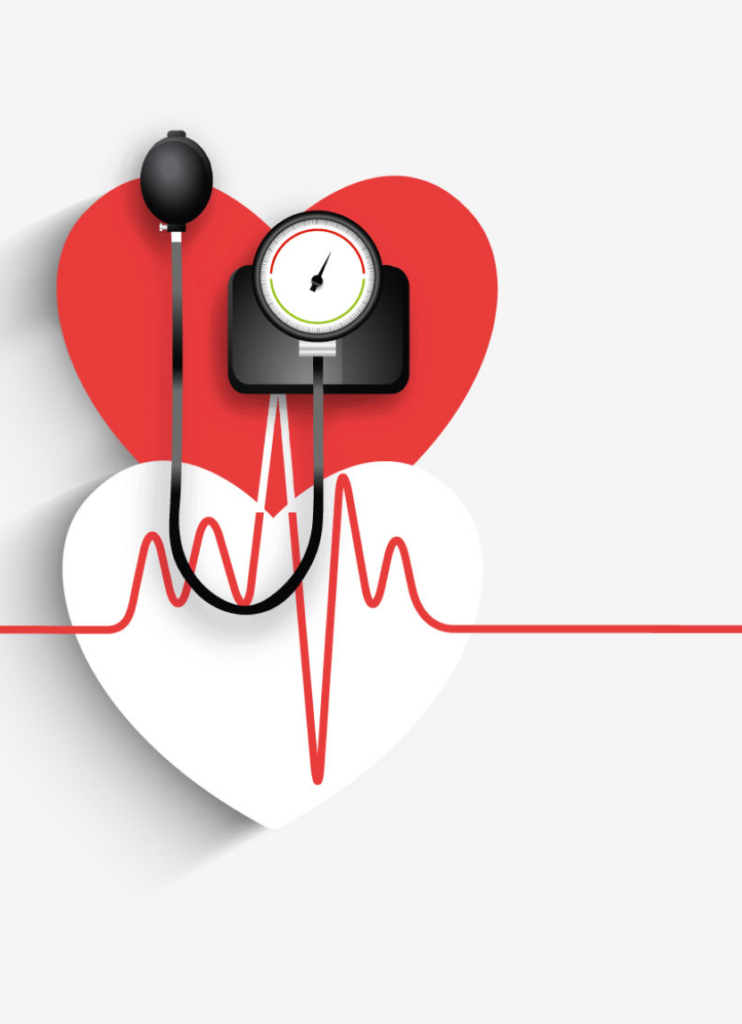Home » National Hypertension Awareness Campaign
Hypertension often goes unnoticed but is among the leading modifiable risk factors for cardiovascular disease and premature death worldwide. The prevalence, consequences, disease risk and associated mortality of hypertension place a considerable burden not only on individuals but on health service resources. In this article Janis Morrissey, Director of Health Promotion, Information and Training at the Irish Heart Foundation, discusses a major new campaign to raise awareness of hypertension and the importance of regular blood pressure measurement.

The Irish Heart Foundation is delighted to partner with the Irish Pharmacy Union on a major new campaign to raise awareness of the causes and impact of hypertension (high blood pressure), and motivate people to get their blood pressure checked regularly. The campaign, supported by Pfizer, will also collaborate with the Irish College of General Practitioners and many other key players in the health sector.
The Irish Heart Foundation’s campaign will remind the public that hypertension is a major risk factor for cardiovascular disease (including stroke and heart attack), cognitive decline (including dementia), and kidney disease. It will also inform people of common modifiable risk factors, namely a diet that is high in salt but low in fruit and vegetables, being overweight, high alcohol intake and low physical activity.
Despite being the leading modifiable risk factor for cardiovascular disease and premature death, research has shown that Ireland has one of the lowest rates of awareness, treatment and control of hypertension among 12 high-income countries. Indeed, a review of the Irish Longitudinal Study on Ageing (TILDA) in the Journal of Public Health in 2016 reported that 64% of over-50s had high blood pressure and, worryingly, 45% of those were unaware of their condition. Of those with high blood pressure, 59% were taking medication to reduce it, but almost half of those did not actually have their blood pressure controlled to normal levels.
Research also shows there are significant benefits to hypertension treatment. A major systematic review in The Lancet found that in the populations studied, every 10mmHg reduction in blood pressure resulted in:
These striking figures point not only to the need for, but also the enormous benefit of, a campaign to help people take control of their blood pressure through regular checks and small changes to their lifestyle, if needed.
Targeted at undiagnosed adults aged 50 and over, the campaign will run for three years. It will comprise:
Another significant element of the campaign will be the availability of free blood pressure checks through the Irish Heart Foundation’s Mobile Health Unit (MHU). The MHU, staffed by nurses, conducts about 10,000 opportunistic blood pressure checks a year in mainly disadvantaged, hard to reach community settings, such as men’s sheds, family resource centres and Traveller groups around Ireland. In a three-year period up to 2019, almost one in three (31.6%) health check participants identified with high blood pressure were unaware of having this condition before attending the MHU.
An additional arm of the campaign will be a partnership with The Irish Longitudinal Study on Ageing (TILDA) to assess long-term awareness and behaviour change in relation to hypertension in TILDA’s next wave of research. Fieldwork for this research will start in 2024 and results are anticipated to coincide with the final year of the three-year campaign.
Currently, initial blood pressure management and treatment decisions most frequently take place in General Practice (involving GPs and wider practice staff), while wider primary care (in particular pharmacy), plays a role in initial detection of high blood pressure through opportunistic checks and structured 24-hour blood pressure monitoring services, as well as supporting adherence to medicines. This upcoming campaign presents an opportunity for pharmacists around the country to become more centrally involved in diagnosing and managing hypertension in partnership with GPs.
Indeed, the IPU’s involvement in the campaign builds on previous collaboration with the Irish Heart Foundation in 2018. That year, the IPU, supported by the Foundation, conducted a pilot study on 1,194 participants across 68 pharmacies to detect high blood pressure and atrial fibrillation. An irregular pulse (possible atrial fibrillation) was detected in 5.5% of all participants who were checked, while 27% of participants were identified with high blood pressure (possible hypertension). This pilot resulted in participants being advised to attend their GP and resulted in some either starting or changing medication, some having to attend a cardiologist, and others being monitored. Over 90% of patients said they were more aware of blood pressure and atrial fibrillation as a result of taking part in the pilot through their pharmacist.
Recently, there has been a major push through Sláintecare to transform healthcare delivery with a focus on achieving better integrated, coordinated, high-value care. For hypertension in particular, high quality care requires patient awareness of preventive care, regular blood pressure screening, effective communication between healthcare providers and patients, and active self-management by patients.
The upcoming campaign is timely given the recent publication of the HSE’s Second Report of the Structured Chronic Disease Management Programme, which demonstrated reduction in mean population blood pressure readings for those in the programme. Building on this programme, the campaign will see Non-Governmental Organisations (NGO), and organisations working in advocacy, medical expertise and health service engagement, join forces for long-term changes in hypertension awareness and management, and positive health outcomes.
For more information see www.irishheart.ie.
Janis Morrissey

Director of Health Promotion, Information and Training, Irish Heart Foundation
Highlighted Articles